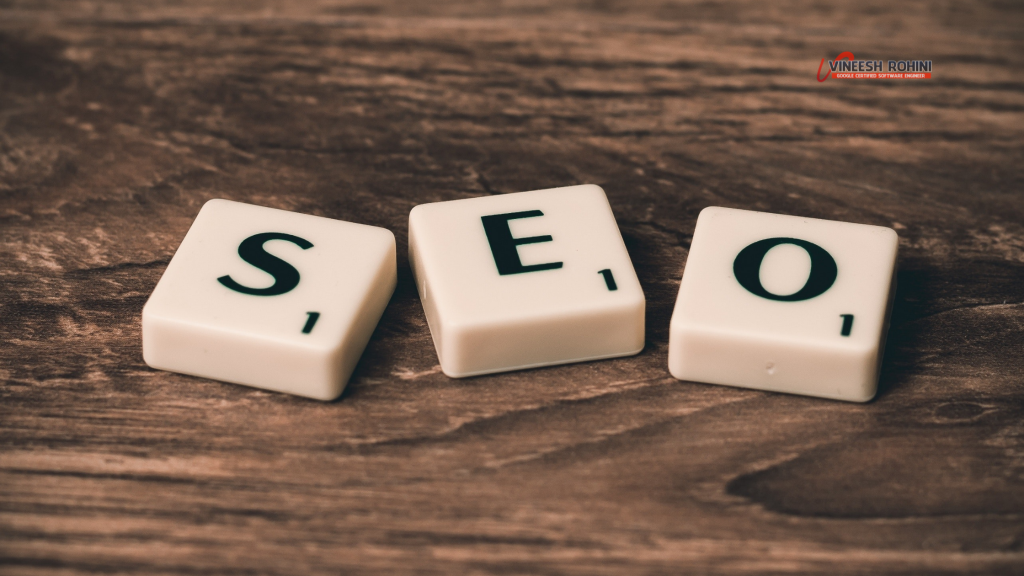Top 10 Digital Marketing Trends in 2024 : Comprehensive Guide
Digital Marketing Trends in 2024 : The world of digital marketing is constantly evolving, driven by advancements in technology, changing consumer behaviors, and the emergence of new platforms. In 2024, businesses must remain agile to leverage these trends and maintain a competitive edge.
Table of Contents
Let’s dive into the top 10 digital marketing trends of 2024, providing insights into how each can shape the future of your marketing strategy.
1. Artificial Intelligence (AI) Revolutionizing Marketing Strategies

Artificial Intelligence (AI) continues to dominate the digital marketing landscape, transforming how businesses analyze data, predict trends, and personalize experiences.
AI-Powered Tools
AI tools like ChatGPT and Jasper are helping marketers create high-quality content efficiently. These tools generate ideas, draft compelling copy, and even optimize for search engines, saving time and resources.
Predictive Analytics
Predictive analytics powered by AI allows brands to forecast trends, consumer behavior, and campaign outcomes with precision.
Also Read : How To Use AI Digital Marketing
This ensures smarter ad targeting, better resource allocation, and improved ROI.
Hyper-Personalization
AI enables hyper-personalization by analyzing user data to deliver content tailored to individual preferences. Dynamic content generation based on browsing history or previous interactions significantly boosts engagement and conversion rates.
2. Rise of Voice Search Optimization
Voice search is no longer a niche feature but a mainstream tool used by millions. Devices like Amazon Echo, Google Home, and smartphones are driving this trend.
Voice Search and SEO
Optimizing for voice search involves:
- Using conversational keywords.
- Structuring content to answer specific questions (FAQs).
- Leveraging long-tail keywords, as users often phrase voice queries differently from text searches.
Localized Voice Search
Voice searches are often local. Businesses should ensure their Google My Business profile is updated and optimized for location-based queries to attract nearby customers.
3. Video Content Dominance
In 2024, video content continues to reign supreme as a preferred medium for consumers.
Short-Form Videos
Platforms like TikTok, Instagram Reels, and YouTube Shorts have popularized short-form videos. They offer quick, engaging content that captures user attention in mere seconds.
Live Streaming
Live streaming on platforms like YouTube, LinkedIn, and Facebook remains a powerful way to interact with audiences in real time, fostering authenticity and trust.
Interactive Videos
Interactive videos with clickable elements, polls, and embedded CTAs encourage active engagement, making them an invaluable tool for product launches and tutorials.
4. Social Commerce Integration
Social commerce is reshaping how consumers shop online, merging social media platforms with e-commerce.
Shoppable Posts
Instagram and Pinterest are leading the way with shoppable posts that allow users to purchase directly from their feeds, creating a seamless shopping experience.
Influencer-Led Commerce
Influencers play a significant role in promoting products through social media. Collaborative campaigns with influencers who align with your brand values can boost visibility and sales.
Live Shopping Events
Live shopping, popularized in markets like China, is gaining traction worldwide. Businesses can host live events to showcase products and interact with potential buyers in real-time.
5. Sustainability and Ethical Marketing
Consumers in 2024 are more socially conscious, seeking brands that prioritize sustainability and ethical practices.
Transparent Branding
Brands that communicate their commitment to sustainability and ethical sourcing build trust and loyalty. Sharing stories about eco-friendly practices or charitable contributions resonates with conscious consumers.
Sustainable Packaging and Messaging
Marketers are incorporating eco-friendly themes in product packaging and campaigns, highlighting their commitment to reducing environmental impact.
Cause-Driven Marketing
Partnering with non-profits or supporting causes through campaigns appeals to consumers looking for brands that align with their values.
6. The Evolution of Search Engine Optimization (SEO)

SEO remains a cornerstone of digital marketing, but it’s evolving to adapt to new search behaviors and algorithms.
Zero-Click Searches
The prevalence of zero-click searches, where users find answers directly on the search results page, is growing. Brands must optimize for featured snippets and knowledge panels to capture visibility.
Visual and Image SEO
Search engines increasingly recognize and rank image content. Optimizing images with descriptive alt texts, relevant file names, and image compression boosts visibility.
Mobile-First Indexing
With most users browsing on mobile devices, search engines prioritize mobile-friendly websites. Responsive design and fast loading speeds are non-negotiable for SEO success.
7. Influencer Marketing’s Continued Growth
Influencer marketing is maturing, with brands opting for more authentic collaborations over superficial endorsements.
Micro-Influencers
Micro-influencers with smaller but highly engaged audiences are preferred for their authenticity and niche appeal. They provide better ROI than mega-influencers in many cases.
Performance-Based Partnerships
Brands are increasingly tying influencer payments to performance metrics like sales, clicks, or sign-ups, ensuring accountability and measurable results.
Cross-Platform Campaigns
Influencers active across multiple platforms amplify a brand’s reach and engagement, making them valuable partners in integrated marketing strategies.
8. Emphasis on Data Privacy and Security
With growing concerns about data privacy, marketers must prioritize transparency and compliance to maintain consumer trust.
Adapting to Data Regulations
Compliance with GDPR, CCPA, and other regional data protection laws is crucial. Businesses must be transparent about how they collect, use, and store customer data.
Cookieless Future
As third-party cookies phase out, brands must rely on first-party data and innovative tracking solutions to understand consumer behavior.
Secure Transactions
For e-commerce platforms, ensuring secure payment gateways and data encryption builds trust and encourages repeat purchases.
9. Chatbots and Conversational Marketing
Chatbots have evolved from basic customer service tools to advanced conversational marketing assets.
AI-Driven Chatbots
Modern chatbots can understand and respond to complex queries, providing 24/7 customer support and personalized recommendations.
WhatsApp and Messenger Marketing
Messaging apps are becoming key platforms for conversational marketing. Chatbots on WhatsApp or Facebook Messenger facilitate seamless customer interactions, including product inquiries and order updates.
Interactive Experiences
Brands use conversational interfaces to guide users through product selections, troubleshooting, and checkout processes, creating a frictionless user journey.
10. Augmented Reality (AR) and Immersive Experiences
Augmented Reality (AR) is revolutionizing how consumers interact with products online, offering immersive and interactive experiences.
Virtual Try-Ons
Retailers in the fashion and beauty industries use AR to let customers try on products virtually, enhancing the online shopping experience.
AR Ads
AR-powered ads enable users to interact with branded content in real-time, boosting engagement and memorability.
Immersive Storytelling
Brands use AR to create compelling narratives that captivate audiences, making campaigns more impactful and shareable.
How to Leverage These Trends

To capitalize on these trends, businesses must adopt a holistic approach:
- Invest in Technology: Embrace AI, AR, and data analytics to enhance campaigns and improve user experiences.
- Prioritize User Experience: Optimize websites for speed, mobile-friendliness, and intuitive navigation.
- Focus on Authenticity: Build genuine relationships with influencers and emphasize transparent branding.
- Experiment with Platforms: Test emerging platforms and tools to identify what resonates most with your audience.
- Stay Agile: Continuously monitor trends and adapt strategies to stay ahead of competitors.
Conclusion
The digital marketing landscape in 2024 is marked by innovation, personalization, and a stronger emphasis on user trust and engagement.
Buy Now : Professional Digital Marketing Course
From AI-driven insights to immersive AR experiences, these trends offer exciting opportunities for businesses willing to adapt and innovate. By leveraging these top 10 trends, marketers can not only keep pace with the changing landscape but also build meaningful connections with their audiences, ensuring sustained growth and success in the digital age.
Keywords : Digital Marketing Trends in 2024 – Digital Marketing Trends in 2024 – 2025 – Digital Marketing Trends in 2024 List , Digital Marketing Trends in 2024 Essay,



